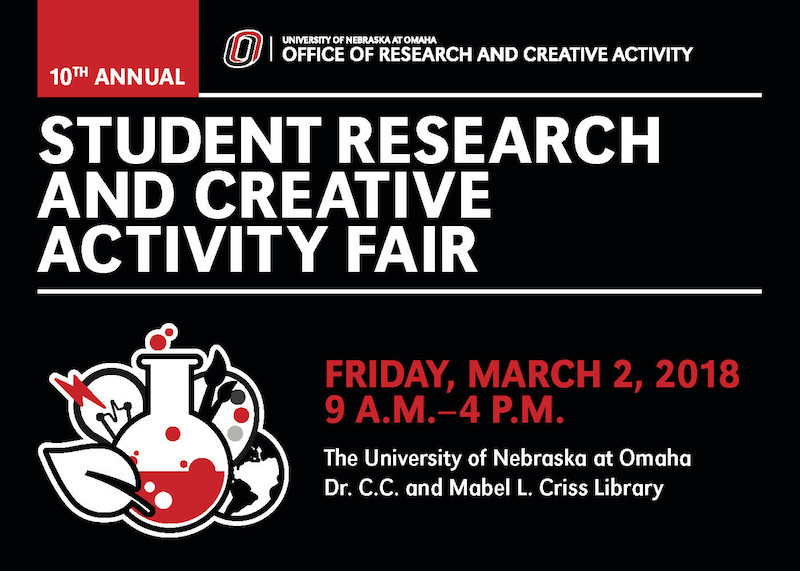
Confirming Potential Targets of the Antimicrobial Peptide by Constructing Knock-out Mutants
Advisor Information
Dr. Donald Rowen
Location
Dr. C.C. and Mabel L. Criss Library
Presentation Type
Poster
Start Date
2-3-2018 2:15 PM
End Date
2-3-2018 3:30 PM
Abstract
Due to the evolution of bacteria, many antibiotics are becoming ineffective, casting a shadow over medicine. One pathogen of growing concern is Pseudomonas aeruginosa, which is commonly contracted in hospitals. In order to combat these microbes, new antibiotics are needed. One promising candidate is an antimicrobial peptide, DASamp2, developed by Dr. Wang from UNMC. This AMP has been observed to be effective against both Staphylococcus aureus and P. aeruginosa. To further investigate DASamp2 as an antibiotic, one would like to know the factors that affect the susceptibility of a bacterium to it. Our lab has previously identified mutants of P. aeruginosa that showed increased resistance to DASamp2. One mutant, F2, appears to have a mutation that causes overexpression of the gene PA5189. Little is known about PA5189, beyond that it appears to be a novel regulator of antibiotic resistance in P. aeruginosa and encodes a transcription factor that regulates the expression of other genes. To help confirm that the mutation in F2 is causing overexpression of PA5189 and that the change affects susceptibility to DASamp2, I have attempted to clone the wild type PA5189 and the F2 mutated PA5189 gene into plasmids. After construction, both plasmids will be introduced into wild type P. aeruginosa cells. We expect to observe that the plasmid with mutated PA5189 will cause increased resistance to DASamp2, thereby, confirming that overexpression of the gene can alter susceptibility to this AMP. Further studies would then identify the role of PA5189 in resistance to DASamp2.
Confirming Potential Targets of the Antimicrobial Peptide by Constructing Knock-out Mutants
Dr. C.C. and Mabel L. Criss Library
Due to the evolution of bacteria, many antibiotics are becoming ineffective, casting a shadow over medicine. One pathogen of growing concern is Pseudomonas aeruginosa, which is commonly contracted in hospitals. In order to combat these microbes, new antibiotics are needed. One promising candidate is an antimicrobial peptide, DASamp2, developed by Dr. Wang from UNMC. This AMP has been observed to be effective against both Staphylococcus aureus and P. aeruginosa. To further investigate DASamp2 as an antibiotic, one would like to know the factors that affect the susceptibility of a bacterium to it. Our lab has previously identified mutants of P. aeruginosa that showed increased resistance to DASamp2. One mutant, F2, appears to have a mutation that causes overexpression of the gene PA5189. Little is known about PA5189, beyond that it appears to be a novel regulator of antibiotic resistance in P. aeruginosa and encodes a transcription factor that regulates the expression of other genes. To help confirm that the mutation in F2 is causing overexpression of PA5189 and that the change affects susceptibility to DASamp2, I have attempted to clone the wild type PA5189 and the F2 mutated PA5189 gene into plasmids. After construction, both plasmids will be introduced into wild type P. aeruginosa cells. We expect to observe that the plasmid with mutated PA5189 will cause increased resistance to DASamp2, thereby, confirming that overexpression of the gene can alter susceptibility to this AMP. Further studies would then identify the role of PA5189 in resistance to DASamp2.

Additional Information (Optional)
Was not able to find spot for this, but the coauthors for this poster presentation are: Christopher Johnson and Zachary Scott